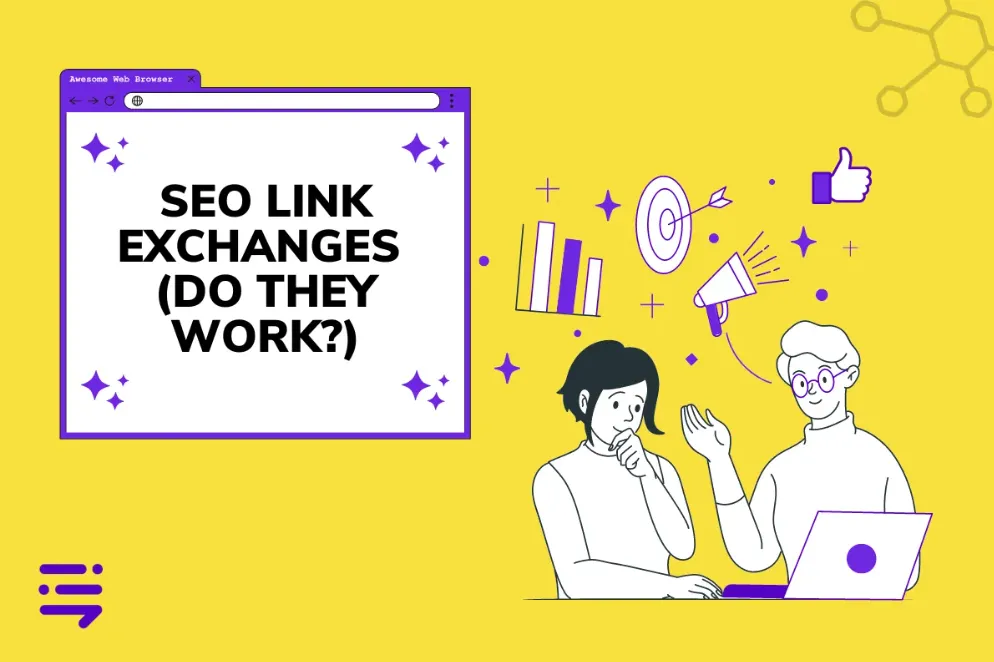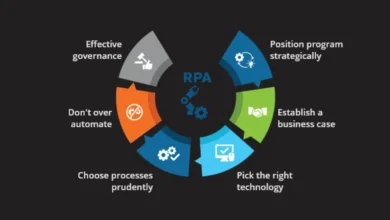The Intricacies of Link Exchanges: The Backbone of SEO

Key Takeaways
- Understanding the importance of link exchanges in SEO strategy.
- Distinguishing between positive and negative link exchanges.
- Improving link-building through the study of ethical practices.
- Information about essential data and research that back up the concept of link exchanges.
- Strategies for keeping a strong and moral approach to building links.
Introduction to Link Exchanges
Link exchanges are a common SEO strategy involving a mutual agreement between two sites to feature each other’s links. They aim to enhance visibility and domain authority and improve SERP rankings, provided they’re done ethically. However, do link exchanges work as effectively as other SEO techniques? In the digital age, search engines use links between reputable sites as endorsements, which enhances the sites’ credibility and domain authority. It’s crucial to differentiate ethical from unethical link exchange practices to avoid pitfalls.
The Role of Link Exchanges in SEO
Link exchange plays a pivotal role in enhancing a website’s domain authority. In essence, domain authority is a metric that anticipates a website’s ranking on search engine result pages (SERPs), with the quality and quantity of inbound links being a significant factor. When two reputable websites exchange links, it shows search engines that they are reliable sources of information, leading to better search rankings. For example, receiving a top-notch backlink from a reputable authority in your field can significantly enhance your website’s trustworthiness.
However, it must be noted that all link exchanges do not have the same value. Although ethical link exchanges can be advantageous for your website, engaging in unethical practices could lead to search engine penalties.
Good vs. Bad Link Exchanges
- Good Link Exchanges: These involve websites with relevant and high-quality content. The exchanged links offer genuine value to readers and adhere strictly to search engine guidelines. Such exchanges are typically organic, occurring naturally between sites with related content and audiences.
- Nasty Link Exchanges: On the flip side, lousy link exchanges often involve unrelated content and spammy practices. These can include reciprocal linking agreements among low-quality or irrelevant websites, engaging in link farms, or using automated tools to generate links. Search engines likely flag such practices, which can severely impact your site’s credibility and ranking.
Understanding this distinction can significantly improve the effectiveness of your SEO strategy. It’s not just about acquiring links but the correct type of links. Avoiding nasty link exchanges is critical for maintaining a solid online presence. They highlight the importance of context and relevance, noting that links should be a natural content extension rather than forced insertions.
Ethical Practices for Link Building
Engaging in ethical practices is paramount to maintaining the integrity of your link-building efforts. Ethical link-building revolves around prioritizing relevance and quality over quantity. Reach out to websites with meaningful content that aligns with your niche. Instead of resorting to quick, unethical shortcuts, consider contributing guest posts, collaborating on relevant projects, or participating in community forums and events.
Another effective tactic is to create high-quality, link-worthy content on your site. This could be comprehensive guides, valuable resources, or original research. When your content is genuinely helpful, other websites naturally want to link to it, making the link-building process much more organic. Ensure your link-building strategies align with search engine guidelines to avoid penalties or negative impacts on your rankings.
Data and Research Supporting Link Exchanges
The research underscores the effectiveness of ethical link exchanges. According to a 2022 study, websites with a strong network of high-quality inbound links saw a 27% increase in organic traffic over eight months. This data highlights the tangible benefits of ethical link exchanges and underscores their role in driving organic traffic.
Similarly, a report emphasized that websites engaged in ethical link-building strategies were 40% more likely to rank on the first page of search results. These findings offer a compelling case for adopting a thoughtful and ethical approach to link exchanges. You can significantly enhance your site’s search engine performance by prioritizing quality over quantity in your link exchanges and ensuring they are relevant and valuable.
Maintaining a Robust Link-Building Strategy
Consistency is critical to maintaining a robust link-building strategy. Regularly audit your links to ensure they remain relevant and beneficial. Utilize tools to monitor the impact of your link exchanges on traffic and rankings. These audits can help identify low-quality or irrelevant links that may be dragging down your site’s performance, allowing you to take corrective action promptly.
Engage actively with your link partners to keep the relationships fresh and mutually beneficial. It could involve regularly sharing updates or guest posts, co-hosting webinars, or collaborating on content projects. Keeping the lines of communication open ensures that your link-building efforts continue to provide value to both parties.
Final Thoughts
Link exchanges, when executed correctly, can powerfully boost your SEO efforts. By focusing on ethical practices and ensuring a steady flow of quality links, you can elevate your site’s standing in search engine results. Remember, it’s not just about the quantity of links but the quality and relevance that genuinely matter.
Ultimately, the crucial aspect of successful link exchanges is establishing genuine connections with other websites in your market. View link exchanges as a partnership rather than a mere transaction to ensure both parties benefit. This will enhance your SEO and establish a valuable network of connections that could be advantageous for your website in the future.




